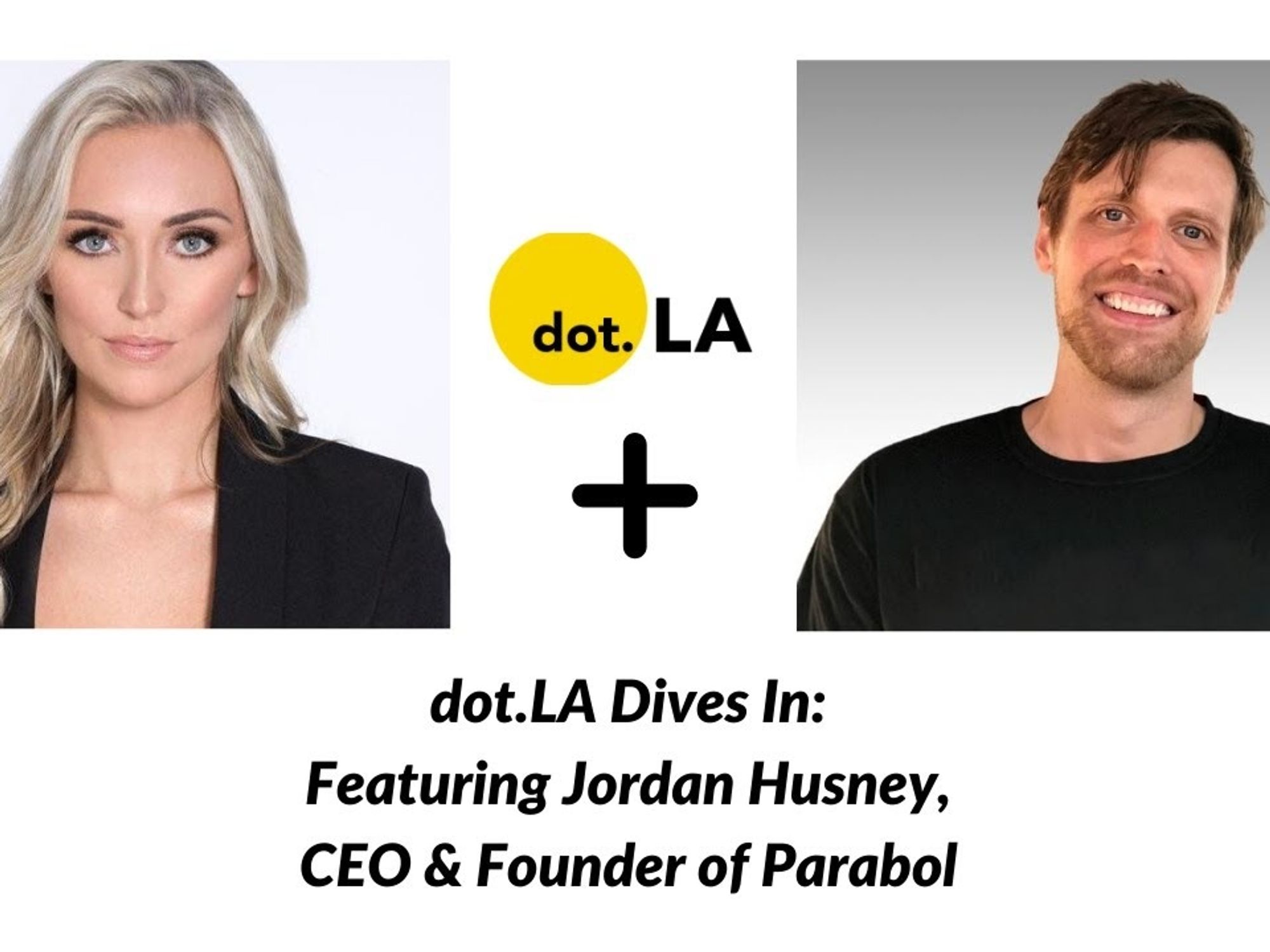Watch: Parabol's CEO on How to Make Remote Meetings Actually Useful

The pandemic has made remote work a necessity. While going to the office used to be a chore, many of us are now wishing for the day when we can once again return to in-person operations as zoom burnout and awkward remote interactions take their toll. But what if "work from home" is here to stay? How can we do it successfully?
In this installment of dot.LA Dives In, we talk with Jordan Husney, CEO and founder of Parabol, an app that allows remote employees to meet, collaborate and form genuine connections — wherever they're located.
During his days as a management consultant, Jordan met one of his executive clients on site in Fairfield, Connecticut — they were both late because of terrible traffic. She gave him a window into her calendar that was stacked with video conference meetings. It was a trend Husney had noticed at companies, and he couldn't help but wonder why clients did not conduct more business from their couch.
"All of our executive clients were de facto remote workers because their employees were global, and they were showing up to the office out of habit. I couldn't unsee that, and I thought, 'This is going to keep extending'," Husney said.
In August 2015, Parabol was born. With a focus on agile teams, the app seeks to make it easy for employees to have great remote meetings when they don't have the luxury of a conference room.
"The success of a meeting depends on the talent of the participants in terms of their ability to facilitate the time they spend together," said Husney. "We try to break down the meetings into these discrete little activities that you can do that are actually fun, and that lead you to a result that is always useful."
Husney said he sees companies simply taking everything within an office and trying to do the exact same thing virtually — down to virtual lunches and golf sessions to woo a client — rather than focusing on the core aspect of an interaction they are trying to recreate. But the problems extend beyond trying to sign a client virtually.
"When am I on, and when am I off? And how do I broadcast what I actually need from any given day? So many folks came from office cultures where they looked up to the boss to establish the cultural norms," Husney said. "When you're away and the boss isn't looking at you, there is actually a responsibility on you to say, 'I'm starting work, I'm stepping away'."
A big part of the success of remote work is building an authentic culture. Husney believes you can do that with the help of tools like Donut and Icebreaker. But building culture also requires being intentional about how you utilize your employees' time, whether it is a business meeting or a social event.
"What do people hate? They hate having their calendar chewed up with a bazillion meetings," Husney said. "What if, now that you're in a remote context, you could start from a principle where by default there are no meetings, and your work could be fully done on your own time. Then, when you have 'mandatory fun time', people are kind of hungry for the social interaction."
Watch the full interview here:
Jordan Husney: Parabol & the Future of Remote Workwww.youtube.com
---
Kelly O'Grady runs video and serves as the chief host & correspondent for dot.LA. Find her on Instagram @kfogrady and email her at kelly@dot.LA.





 Image Source: Skyryse
Image Source: Skyryse